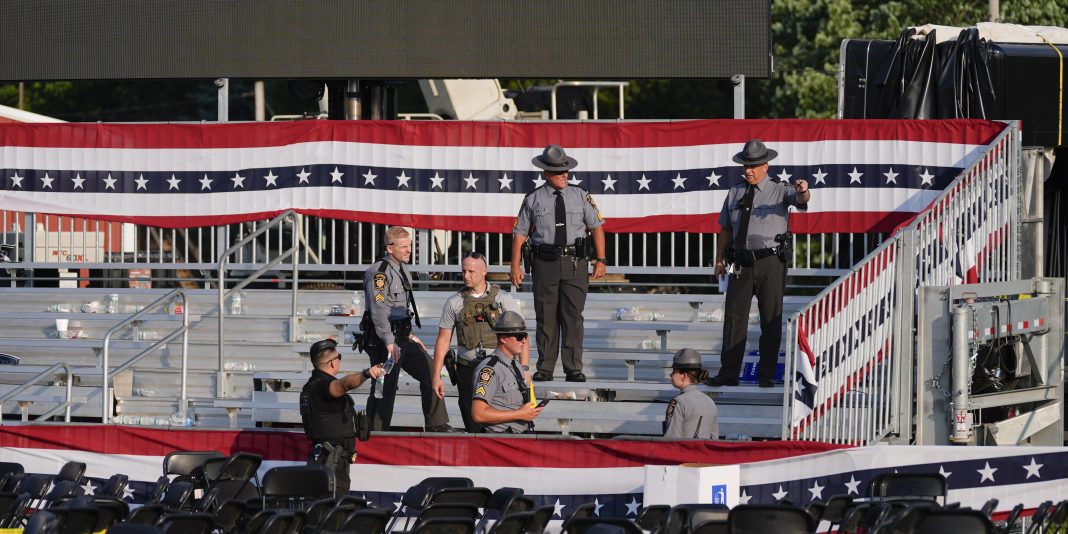Introduction:
Law enforcement officials are investigating an attack on former President Donald Trump that occurred on July 13, 2024, in Butler, Pennsylvania. The incident has prompted bipartisan condemnation of political violence, with politicians emphasizing the need for civility and respect in politics. However, this response raises questions about the definition and normalization of political violence in society.
The Definition of Political Violence:
Politicians, including President Joe Biden, have labeled the attack on Trump as political violence rather than terrorism. This distinction reflects a broader agreement on what constitutes political violence and who holds the monopoly on violence. While deadly attacks on the American ruling class are rare, other forms of political violence such as poverty, militarized borders, police brutality, and incarceration are more prevalent.
The Problem of Normalization:
The widespread condemnation of political violence is not inherently problematic. However, when politicians denounce political violence while simultaneously perpetuating state and capitalist monopolies on violence, it raises concerns about the normalization of such violence. By condemning political violence without addressing the systemic issues that contribute to it, politicians risk perpetuating a cycle of violence.
Selective Condemnation:
Critics argue that the condemnation of political violence is often selective, particularly when it comes to violence against rich, white men. Author Ben Ehrenreich highlights the hypocrisy of condemning political violence against this demographic while ignoring the violence perpetrated by the state and capitalism. This selective condemnation reinforces existing power structures and fails to challenge the normalization of violence.
Political Imaginary and Tribalism:
The attempted assassination of Trump is likely to fuel his and the Republican Party’s narrative of an apocalyptic race war and paranoid tribalism. While Democrats may extend civility towards Trump, they cannot claim to be advocating for an end to political violence while simultaneously supporting policies that contribute to violent repression and policing of dissent.
Blaming Democrats:
Republicans have blamed Democrats for their rhetoric about Trump’s far-right extremism, suggesting that it led directly to the assassination attempt. This blame game undermines the ability of leftists to organize against fascist forces and criminalizes left-wing and pro-Palestinian protest movements. The bipartisan condemnation of violence in this context raises questions about the true meaning of peace and the selective application of condemnation.
Conclusion:
The shooting attempt on former President Donald Trump has sparked bipartisan condemnation of political violence. However, this condemnation is not without its complexities. The definition and normalization of political violence, as well as the selective condemnation of certain forms of violence, raise concerns about the effectiveness and sincerity of these condemnations. Moving forward, it is crucial for politicians to address the systemic issues that contribute to political violence and to avoid perpetuating cycles of violence through their actions and policies.


